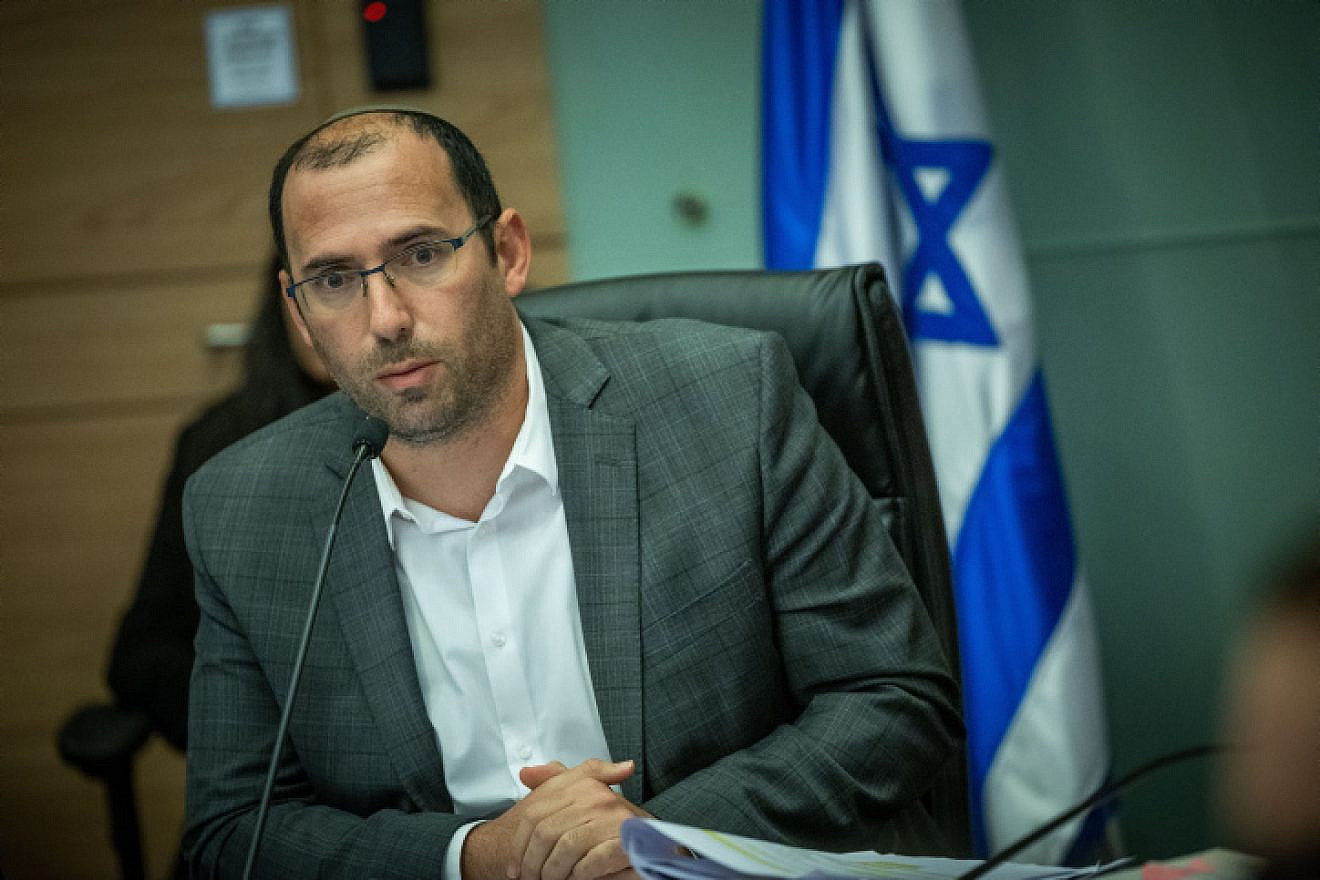Police arrested 71 persons on Tuesday who participated in protests and violated public order as thousands of opponents of the government’s judicial reform initiative blocked highways and interchanges across the country after the Knesset voted overnight to advance key legislation.
Thirty-three of the suspects were arrested during disturbances in the Tel Aviv District, 21 in the Central District, 10 in the Jerusalem District and seven in the Coastal District, police said.
Forty-five of the 71 suspects have been released, police added.
More arrests are expected.
While police would not provide estimates to JNS on the number of protesters, there appeared to be significantly fewer participants than in previous demonstrations held over the past few months.
In Tel Aviv, protesters clashed with police. Police were making much more of an effort to keep the city’s main routes open than during past protests against the judicial reforms, deploying water cannons against people illegally blocking the roads.
The “Day of Resistance” saw marches, demonstrations and convoys to highways in and around Jerusalem, Tel Aviv, Haifa, the Binyamin region, and Ben-Gurion Airport. Demonstrations outside the President’s Residence in Jerusalem and the U.S. embassy branch in Tel Aviv were due to be held on Tuesday evening.
המחאה נגד הרפורמה: מספר העצורים במחאות ברחבי הארץ עלה ל-42 | עדכונים שוטפים >> https://t.co/lSZGCi0jSY@moyshis pic.twitter.com/AMzhkwoE8x
— כאן חדשות (@kann_news) July 11, 2023
Police made additional arrests in the afternoon, including in Tel Aviv for an illegal demonstration on Kaplan Street, where officers kept activists from reaching the nearby Ayalon Highway, and two in Jerusalem.
In Haifa, police declared a protest illegal after thousands of demonstrators blocked an access road to the Carmel Tunnel.

Police said that they will prevent a repeat of the protest on July 3, when thousands of demonstrators tried to block traffic to the airport and succeeded in snarling movement, including at the arrival halls.
On Tuesday morning, a group of Yom Kippur War veterans and the “Building an Alternative” movement gathered in the Ben-Gurion Airport arrivals hall for a demonstration.
חסימה במחלף הסירה, הרצליה pic.twitter.com/QoxeZt1Hdi
— Or-ly Barlev ~ אור-לי ברלב (@orlybarlev) July 11, 2023
Also on Tuesday, Attorney General Gali Baharav-Miara published a letter stating that it is permissible to demonstrate at the airport due to it being a public space.
Cabinet ministers on Sunday assailed Baharav-Miara for allowing, in their view, protesters to run rampant in a bid to paralyze the country.
“There can be no effective protest without disturbing the public order,” Baharav-Miara said at the weekly Cabinet meeting in Jerusalem.
Prime Minister Benjamin Netanyahu responded by saying, “That’s a shocking sentence. Are you saying that besieging a barbershop from inches away is legitimate?” he asked, in a reference to his wife’s experience on March 1, when she had to be rescued by hundreds of police after being trapped in a hair salon for hours by anti-judicial reform protesters in Tel Aviv.
Chairman of the Histadrut labor federation Arnon Bar-David on Tuesday threatened another economic shutdown, saying that when the situation “reaches an extreme, we will intervene and use our power.”
The Histadrut’s general strike on March 27 against the government’s judicial reform initiative set off a cascade of similar strike calls, from the Israel Medical Association to fast-food chains. Takeoffs at Ben-Gurion were grounded when the Israel Airports Authority joined the strike.

The Knesset Constitution, Law and Justice Committee convened on Tuesday to prepare for the second and third plenum votes a bill to restrict the use of the “reasonableness” standard by the Supreme Court. This comes after the parliament overnight Monday passed the bill in first reading.
Monday’s vote was taken along partisan lines, 64-56.
MK Simcha Rothman, chairman of the Knesset Constitution, Law and Justice Committee, said Sunday he would immediately prepare the bill for the two additional plenum votes necessary for it to become law.

The goal of the coalition is to pass the bill before the end of the summer session on July 29.
The legislation would bar “reasonableness” as a legal justification for judges to reverse decisions made by the Cabinet, ministers and “other elected officials as set by law.”
Critics say the standard is legally vague and has been used by the Supreme Court to encroach upon the government’s authority. Opponents say the bill will erode Israel’s system of checks and balances and lead to an abuse of power.
The initiative “isn’t the end of democracy, but rather will strengthen democracy,” Netanyahu said on Monday in defense of the legislation.
“The rights of the courts and Israeli citizens will not be harmed in any way. The court will continue to monitor the legality of government decisions and appointments. [We] will be required to act in good faith and with proportionality, fairness and equality,” he added.
Opposition leader Yair Lapid on Tuesday predicted that passing the “reasonableness clause” into law would bring down the coalition.
“This law is the end of this government. It will bring about your downfall. Governments that act in such a callous way against Israel’s interests will not survive,” the Yesh Atid chairman said at the Constitution Committee meeting.


























